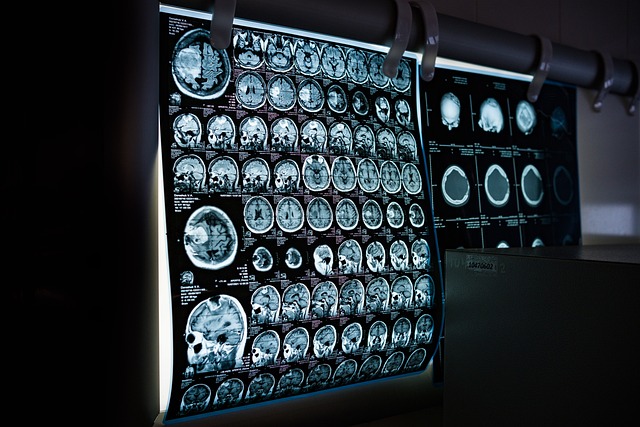Progressive Multiple Sclerosis Management: Signs, Lifestyle, and Monitoring Strategies
Progressive multiple sclerosis represents a challenging form of the disease where symptoms gradually worsen over time, requiring comprehensive management approaches. Unlike relapsing-remitting forms, progressive multiple sclerosis involves continuous deterioration of neurological function, making early recognition and proactive management essential for maintaining quality of life and slowing disease progression.

What Are the Key Signs of Progressive Multiple Sclerosis?
Recognizing the signs of progressive multiple sclerosis can be complex, as symptoms often develop gradually rather than appearing suddenly. Primary progressive MS typically begins with mobility issues, particularly difficulty walking that slowly worsens over months or years. Patients may notice increased fatigue, muscle weakness in the legs, and balance problems that progressively interfere with daily activities.
Secondary progressive MS, which develops after an initial relapsing-remitting phase, shows similar patterns of gradual decline. Cognitive changes may become more apparent, including problems with memory, concentration, and processing speed. Vision problems, bladder dysfunction, and speech difficulties can also emerge or worsen during the progressive phase. The hallmark characteristic is the steady progression of disability without the clear recovery periods seen in relapsing forms.
How Can Lifestyle Changes Support Management?
Lifestyle changes play a crucial role in managing progressive multiple sclerosis and can significantly impact disease progression and symptom severity. Regular physical activity, adapted to individual capabilities, helps maintain muscle strength, flexibility, and cardiovascular health. Low-impact exercises such as swimming, yoga, or chair-based workouts can be particularly beneficial for those with mobility limitations.
Nutritional considerations are equally important, with research suggesting that anti-inflammatory diets rich in omega-3 fatty acids, fruits, vegetables, and whole grains may help reduce disease activity. Maintaining a healthy weight reduces stress on joints and muscles already affected by MS symptoms. Stress management techniques, including meditation, deep breathing exercises, and adequate sleep, can help prevent symptom flare-ups and improve overall well-being.
Temperature regulation becomes increasingly important, as heat sensitivity can worsen symptoms. Creating cool environments, using cooling products, and timing activities during cooler parts of the day can help maintain function and comfort.
What Monitoring and Management Strategies Are Most Effective?
Effective monitoring and management strategies for progressive multiple sclerosis require a multidisciplinary approach and regular assessment of disease progression. Regular MRI scans help track brain and spinal cord changes, while functional assessments measure walking speed, cognitive performance, and daily living capabilities. These objective measures help healthcare teams adjust treatment plans and identify when interventions need modification.
Symptom tracking through daily logs or mobile applications can provide valuable insights into patterns and triggers. Recording fatigue levels, mobility changes, cognitive symptoms, and mood fluctuations helps identify trends that might otherwise go unnoticed. This information proves invaluable during medical appointments and treatment planning.
Physical and occupational therapy assessments should occur regularly to address changing needs and prevent complications. Adaptive equipment recommendations, home modifications, and mobility aids can significantly improve safety and independence as the disease progresses.
When to Visit a Doctor for Progressive MS Concerns?
Knowing when to visit a doctor becomes critical in progressive multiple sclerosis management, as timely intervention can prevent complications and optimize treatment outcomes. Any sudden worsening of existing symptoms or appearance of new neurological symptoms warrants immediate medical attention. This includes significant changes in walking ability, new weakness, severe fatigue that interferes with daily activities, or cognitive changes that affect work or personal relationships.
Scheduled appointments should occur at least every three to six months, even when symptoms appear stable. These visits allow for objective assessment of disease progression and adjustment of management strategies before problems become severe. Additionally, seek medical attention for signs of complications such as urinary tract infections, pressure sores, falls, or mood changes including depression or anxiety.
Emergency medical care becomes necessary for symptoms such as severe difficulty breathing, sudden vision loss, severe confusion, or inability to walk when previously mobile. These could indicate serious complications requiring immediate intervention.
Comprehensive care for progressive multiple sclerosis involves coordination between neurologists, physical therapists, occupational therapists, and other specialists. Understanding the progressive nature of the condition, implementing appropriate lifestyle modifications, maintaining vigilant monitoring, and knowing when to seek medical care creates the foundation for effective long-term management. While progressive MS presents ongoing challenges, proactive management strategies can help maintain function, independence, and quality of life for extended periods.
This article is for informational purposes only and should not be considered medical advice. Please consult a qualified healthcare professional for personalized guidance and treatment.




